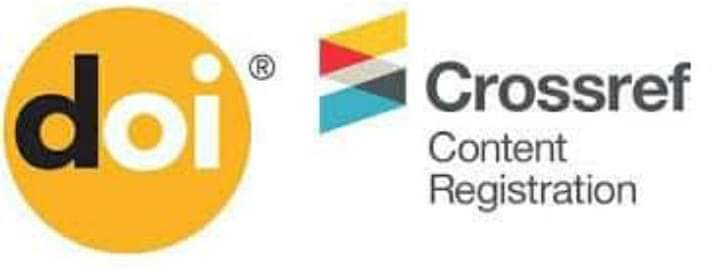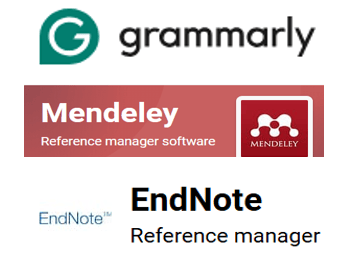Assessing the Drinking Water Quality, and its Commercial Purification Units Efficiency Distributed in Alassaba Municipality- Libya
DOI:
https://doi.org/10.37375/sjfssu.v4i1.2523Keywords:
Ground water, Purification technologies, purified water, Water quality.Abstract
The demand for drinking water is increasing daily due to the rising world population, alongside the leakage of water, overuse of groundwater, and occurrence of several pollution issues that led to reducing the quality of groundwater. Consequently, in most countries purifying water technologies have been used to obtain drinkable water. Nationally, Libyans use the purified water extensively in their daily needs. Accordingly, to ensure that our citizen utilize harmless water, the quality of the used water and the efficiency of purification units was assessed by analyzing several physical and chemical characteristics of purified water and raw water supplied to the purification units from some local wells and man-made river (MMR) using recommended standard methods. The study results showed that the quality of purified water is excellent, and the purification process reduced the pH, electro conductivity and the concentration of studied chemical properties significantly to values less than the optimum levels (OL) suggested by the World Health Organization (WHO) and Libyan standards (LS) for drinking water. As a conclusion, the studied purified water may use in the daily needs of human with continuously analytical monitoring.
References
Abderahman, D. A., 2021. Chemical and physical analyses of bottled water in Duhok governorate. The Academic Journal Of Nawroz Un. – Kurdistan – Iraq, 10 (1), pp., 310 – 317.
Aboraye, R., M. A. and, Aboraye, F. M., 2017. Assessing the quality of surface and ground water of Wadi Kame. The Educational Journal of Al-Margab Un., (11), pp. 143 – 155.
Abogussa, A. M. and Madi, N. A., 2012. Assessment of Microbial and Chemical Contamination in Re-Usable 18 Liter Bottled water Marketed in Tripoli City and its Suburbs. The Libyan Journal of Agriculture, 17 (1-2), pp. 60-67.
Ali, S. M., and Salman, H. Q., 2021. Irrigation water quality (ground water) in some farms of the Hamza agriculture project. Journal Of Marine Science And Environmental Technologies,7(2), pp., A-11 – A-20.
Al-Keylany, A. K., Hassen, T. M., Al-Modey, F. A., 2020. Evaluating the water quality of commercial desalination plants distributed in Sabratha city and its suburbs. Al-qurtas Journal of Humanities and Applied Sciences, 11, pp., 420-432.
APHA: American Public Health Association, Standard Methods: For the Examination of Water and Wastewater, APHA, AWWA, WEF/1995, APHA Publication. 1995.
Dhakad, N.K., Deepak, S. and Choudhary, P., 2008. Water quality index of ground water (GWQI) of Jhabua Town, MP (India). Journal of Environmental Research and Development, 2(3), pp.443-446.
Gabbasa, M. A., Asbany, N. H., Sultan, O. M., 2020. Analysing of chemical and biological properties to evaluate the quality of bottled drinking water in the city of Tripoli, Libya. The University Bulletin – Al- Zawia Un., 22(3), pp., 1 – 19.
Huang, Y., Ma, X., Tan, Y., Wang, L., Wang, J., Lan, L., Qiu, Z., Luo, J., Zeng, H. and Shu, W., 2019. Consumption of very low mineral water is associated with lower bone mineral content in children. The Journal of Nutrition, 149(11), pp.1994-2000.
Huang, Y., Wang, J., Tan, Y., Wang, L., Lin, H., Lan, L., Xiong, Y., Huang, W. and Shu, W., 2018. Low-mineral direct drinking water in school may retard height growth and increase dental caries in schoolchildren in China. Environment international, 115, pp.104-109.
Ighalo, J.O., Adeniyi, A.G. and Marques, G., 2021. Artificial intelligence for surface water quality monitoring and assessment: a systematic literature analysis. Modeling Earth Systems and Environment, 7(2), pp.669-681.
Ighalo, J.O. and Adeniyi, A.G., 2020. A comprehensive review of water quality monitoring and assessment in Nigeria. Chemosphere, 260, p.127569.
Libyan standards of drinking water (No; 82) 2013, The Libyan National Centre for Standardization and Metrology, Tripoli - Libya.
Malan, A. and Sharma, H.R., 2023. Assessment of drinking water quality and various household water treatment practices in rural areas of Northern India. Arabian Journal of Geosciences, 16(1), p.96.
Memon, M., Soomro, M.S., Akhtar, M.S. and Memon, K.S., 2011. Drinking water quality assessment in Southern Sindh (Pakistan). Environmental monitoring and assessment, 177, pp.39-50.
Oko, O.J., Aremu, M.O., Odoh, R., Yebpella, G. and Shenge, G., 2014. Assessment of water quality index of borehole and well water in Wukari Town, Taraba State, Nigeria. Assessment, 4(5), pp.1-9.
Owen, N. A., and Kamoka, H. S., 2019. Study of some physical and chemical properties of some locally bottled water. The journal of sciences- Misrata Un., A special issue for the Third Annual Conference on Theories and Applications of Basic and Life Sciences, held on September 7, 2019, pp., 158 -168.
Rahmanian, N., Ali, S.H.B., Homayoonfard, M., Ali, N.J., Rehan, M., Sadef, Y. and Nizami, A.S., 2015. Analysis of physiochemical parameters to evaluate the drinking water quality in the State of Perak, Malaysia. Journal of Chemistry, pp.1-10.
Tello, Carlos, 2021. Low Chloride Levels (Hypochloremia) Symptoms and Causes. Available at: https://labs.selfdecode.com/blog/low-chloride-levels-hypochloremia/ .[accessed in September 2023. The Journal of Nutrition, 149(11), pp.1994-2000.
Verma, P., Singh, P.K., Sinha, R.R. and Tiwari, A.K., 2020. Assessment of groundwater quality status by using water quality index (WQI) and geographic information system (GIS) approaches: a case study of the Bokaro district, India. Applied Water Science, 10, pp.1-16.
World Health Organization, Drinking Water Guidelines and standard, Geneva, Swizerland, 2002, p.6.
Downloads
Published
Issue
Section
License
Copyright (c) 2024 Scientific Journal for Faculty of Science-Sirte University

This work is licensed under a Creative Commons Attribution 4.0 International License.














